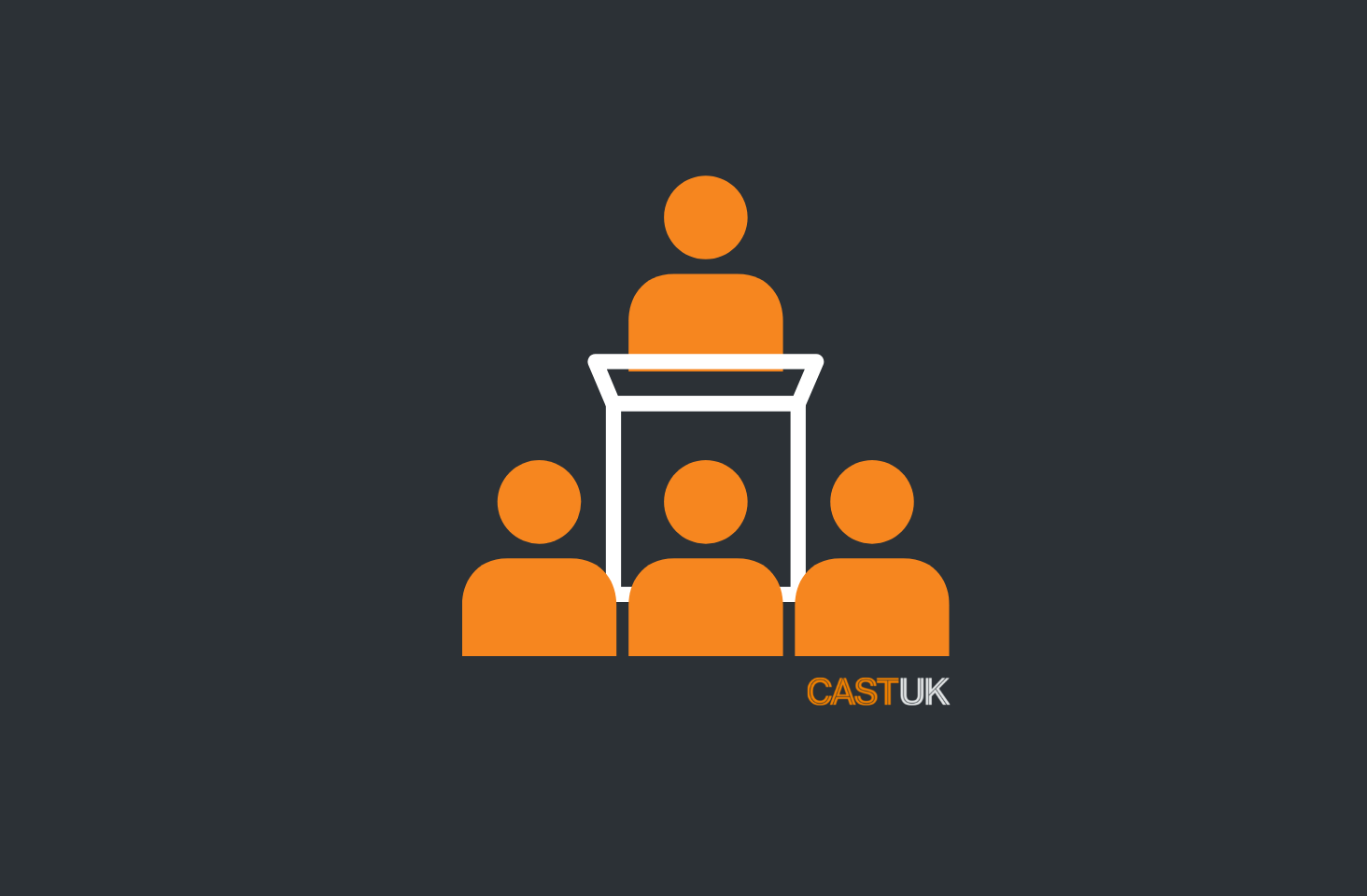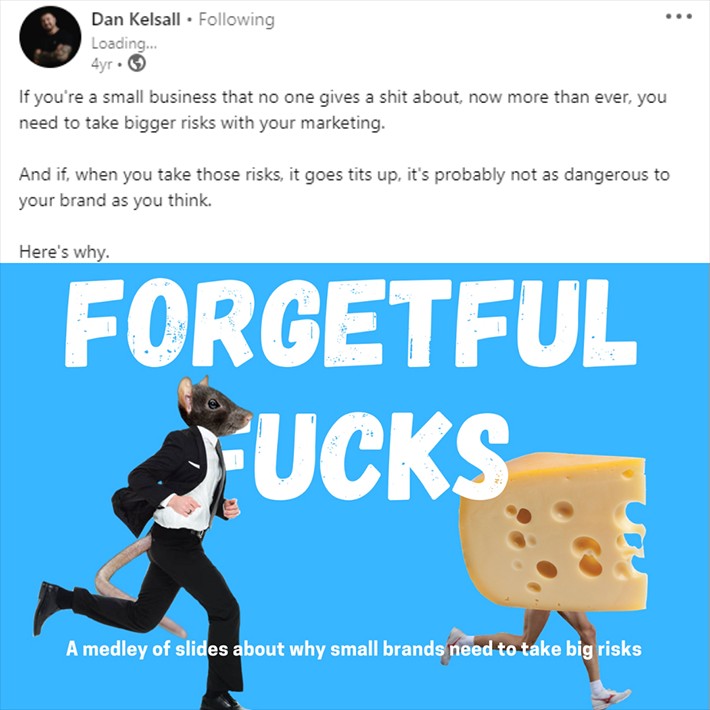
Gary Robinson
Sep 18, 2019
Alienating 80% Of Your Audience Can Improve Employer Brand
What a content marketer with 27,405 followers can teach you about employer branding. It starts with a game of “Good hook, s**t hook”...
At our summer conference, content marketing expert Dan Kelsall delivered a provoking presentation and interactive activities to help us build our personal brands on LinkedIn. And as your employees are your employer brand, read on if you want a chance of attracting the candidates that don’t need to look for work.
For those of you who don’t know Dan Kelsall, he practices what he preaches: he’s not afraid to offend a lot of people if it means he attracts his ideal audience. With 27,405 followers and a stint on Mike Winnet’s podcast (of No.1 recruitment parody account infamy), it’s clearly working.

So read on if your employer branding efforts are not doing much...
Good hook, s**t hook: why most employer branding posts sink
Dan set up an interactive ‘game’, where we were shown LinkedIn posts and had to guess which ones got likes and shares - and which ones were met with stony silence (or just a few likes from friends-in-real-life/co-workers).
Lessons learned: You could share the most inspiring article (or simple post) in the world but if you don’t hook your audience in the opening sentence (or short paragraph), they’re not going to read it. Forget me, me, me. Make it stand out - whether that be through humour, controversy, relatability or inspiring people.
The same applies to job descriptions. Do you lead with a great hook or is it just another “me, me, me” ad? Why should candidates want to read on, instead of just scrolling down to the next ad? Clue: it’s certainly not the “competitive salary” on offer.
Don’t fear controversy
Dan Kelsall has done so well with his approach that he’s rebranded his marketing agency from Twikle to Offended. However, there’s being controversial for the sake of it, and there’s not being afraid to scare off customers you don’t want. The same applies to candidates.
During another activity, Dan asked us to consider the effects of the Nike advert featuring the NBA star Colin Kaepernick (the player who was axed for refusing to stand for the national anthem in protest against racial inequality and police brutality). The video provoked strong emotions in all of us and it was met with equal controversy when it launched - dividing the public down the Democrat and Republic lines.
However, Nike sales shot through the roof. Why? Dan’s thoughts echoed that of University of Michigan business school professor Jerry Davis, told ABC News:
"It looks like a real rebuke for folks who said, 'We’ll boycott Nike. It turns out Democrats buy a lot more sneakers than Republicans. The demo that is willing to spend $200 on Nike sneakers is not the demo that’s going to boycott them because of Kaepernick."
Are you playing it safe about the kind of organisation you are? Do you make it clear exactly what type of candidate you want (or don’t want)? Don’t be afraid to scare off candidates you don’t want to hire in order to attract the candidates you really want in your organisation.
Your employees are your brand - let them be themselves
Lots of employers try to police their employee’s LinkedIn or social media accounts, or fail to get their unique insights for any content that is published. Instead, let your employees be themselves and they will amplify your brand.
The takeaway for employers: Create a social media policy but allow your employees to showcase their personalities on social media. Foster a culture where your employees help create the content and it will be more authentic. Candidates will get a much better feeling for your culture and whether they’d want to work for you.
Which leads us to this: You’ve not got an employer brand to promote if you don’t have a great culture. If you want to hire candidates that will add to your culture (and business growth in the process), then watch our webinar replay: Expert Advice for Interviewing for Cultural Fit (that will add diverse ideas and perspectives to improve your bottom line).


